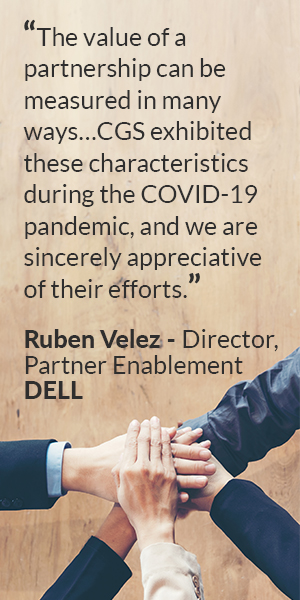Frontline Call Center Agents Share Tips for Handling Stressful Customer Interactions

It’s 2020, we’re all on edge. Covid-19 shut down businesses and sent a lot of people to work from home. Because of the layout of a call center, agents were particularly vulnerable as the pandemic moved around the globe. Over 7,000 CGS agents and employees were transitioned in March to work remotely in under two weeks. While CGS agents were adjusting to a new working environment, call volumes spiked. This came as a result of more customers seeking help through phone and digital channels, where in-person interactions in retail locations were no longer available.
Anxiety and frustration set in for customers needing extra help and information as they dealt with various aspects of Covid-19 fallout – from travel to account adjustments to financial assistance. Frontline agents were often the only connection consumers had to brands in a vulnerable time, which added extra pressure to a job that can be difficult in normal times. We asked our agents to share some stories and advice on how they managed to stay calm and keep customers happy this past year.
Laughter is key.
After reviewing an invoice with my customer, I carefully explain why their bill was higher than normal. They responded to me that if the last representative they dealt with had explained the issue in the level of detail that I did, they wouldn't have been so flustered with the new bill amount. The customer also described to me that they deal with customers all the time in their job and said to always keep a smile on your face and just laugh sometimes even when you might just be having a bad day. Laughter is the key.
Rico Martin
CGS Atlanta
Put yourself in their shoes.
I always say, "I am here to listen and help. Please tell me what's going on." No matter what the issue is I always place myself in the customers’ shoes. It makes it a lot easier to solve the issue when I can understand their frustration.
Ajah Adams
CGS Atlanta
Don’t take things personally.
I always remember that the anger is not really directed at me, but at the situation. I try to calm the customer down and often I get a big thank you.
Malazak Shikiar
CGS Israel
Patience and tolerance.
Working in a call center must involve a lot of patience and tolerance for frustration. There was a client who called all my colleagues “inept” for not solving the client’s requirement. I listened carefully and with very wise and calm words I apologized for all the inconvenience. I explained that I was working toward resolving the issue and that I was going to consider everything they said to improve the situation. However, I also explained that we are all human beings and we must work on our expressions so as not to hurt others.
Joselyn Alexandra Cervantes Barboza
CGS Chile
Stay calm and carry on.
I think the best formula is to stay calm. If we get upset, we cannot communicate properly with the patient or customer. It’s also helpful to me to remember that I always have the assistance of my supervisor, who guides me or offers indications of what could be done to solve the issue.
Jannet Morales LLanten
CGS ChileI always keep calm; even though it is not easy but I know that the client is not annoyed with me and I also understand their anger. I never get upset or speak louder than the client, because that just upsets them more. I have also observed that if you speak normally and give them a sense of security and confidence, most of the time they will calm down and, in the end, will listen to you. After a tough call I drink some water, take a deep breath, or take a quick break to calm myself.
Marcela Pino Saez
CGS Chile
Give reassurances.
I often deal with patients who are having issues with their oxygen delivery devices who are scared, nervous or aggressive. I always speak to them in a sweet and understanding tone. I let them tell me about their fears and anxieties and I always reaffirm their feelings. For example, I will say things like: "you have all the reason," “of course,” “that is your right," “I understand it, anyone would feel that way," or “do not panic, do not be distressed.” I cannot always provide a concrete solution immediately so I always tell them: "I will do everything possible to solve this problem.”
Romina Riquelme Maturana
CGS Chile
Make them feel cared for.
The most important thing is listening to the client and always looking for a way to solve the problem. If I can’t provide a solution immediately, I promise to keep the client informed so that they feel cared for.
Mileidys Beatriz Medina Labarca
CGS Chile
Be mindful.
When I have been treated poorly on a call, I draw pictures in my notebook.
Alicia Huerta Jimenez
CGS Chile
Don’t act on impulse.
As a team leader I often run into difficult situations. I have learned not to react on first impulse, but to carefully analyze the problem and give my verdict after some reflection.
Achim Alexandru Mirel
CGS Romania


